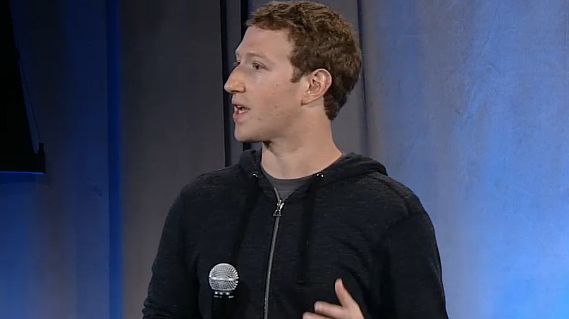Zuckerberg's response to poverty and despair: these people need Facebook!

Imagine you're the head of a multi-billion dollar corporation with more money than most people could ever imagine.
You look around the world, and you see abject poverty, and illness, and despair, and devastation. You think "Jeez! What these people need is Facebook!"
Mark Zuckerberg didn't put it quite like that when he announced Internet.org, of course. "Is connectivity a human right?" he asked, concluding that it is.
As a result, Facebook is teaming up with Samsung, Qualcomm, Ericsson, Nokia, Opera and MediaTek under the banner of Internet.org, whose aim is to connect the rest of the world to Facebook.
It's significant that Facebook is the only content company: there's no Microsoft, no Google, no Twitter, no telecoms networks, no industry bodies. There are two handset makers, an infrastructure supplier, two chip firms and a browser company, and Facebook.
According to The New York Times, they will work together to make phone applications more efficient and make phones less power-hungry.
It's not about the money, says Zuckerberg, writing that "it may not actually be profitable for us to serve the next few billion people for a very long time, if ever."
Sign up for breaking news, reviews, opinion, top tech deals, and more.
Don't believe a word of it. Facebook isn't a charity.
Ulterior motives
Zuckerberg is right that internet access has beneficial effects, but this isn't about making the world a nicer place. It's about playing nice for Wall Street.
Facebook wants to be this century's AOL, the first service people use when they get online and for many, the only service they use when they go online.
Wall Street demands explosive growth from Facebook, and the more developed parts of the world aren't going to deliver that for much longer. Facebook is an enormous business, but it's no longer growing enormously: as Venturebeat reports, its growth is slowing to single digits in highly developed countries - but in the Middle East, Africa and Asia the opportunities are enormous.
If Internet.org can "start to sustainably deliver on the promise of connectivity as a human right", create a situation where "it becomes economically reasonable to offer free basic services to those who cannot afford them" and "define which basic internet services should have free data" - services such as "messaging, social networks, search engines and Wikipedia" - then everything will be brilliant.
"We've already seen results where attaching free data for Facebook... increases both phone sales profits and data plan profits." And Facebook numbers.

Facebook Zero is already driving demand for broadband in Africa, the free product acting as a gateway drug for people who then want to see the pictures and cat videos everybody's sharing (but which aren't included in zero-rated data).
This is good for the world, Zuckerberg says, because "everyone will benefit from the increased knowledge, experience and progress we make from having everyone connected to the internet."
And Facebook will benefit because as those markets develop, Facebook won't have to worry about competing with home-grown social networks: it'll already have lock-in that network effects will make it very hard to overcome.
This isn't about connectivity as a human right, and it isn't about making the world a better place: improved connectivity is a means to an end, not the ultimate goal.
That goal should be obvious: Facebook wants to be this century's AOL, the first service people use when they get online and for many, the only service they use when they go online.
There's nothing wrong with companies wanting to make money. It's just a shame it has to be couched in happy clappy pseudo-humanitarian bullshit.

Contributor
Writer, broadcaster, musician and kitchen gadget obsessive Carrie Marshall has been writing about tech since 1998, contributing sage advice and odd opinions to all kinds of magazines and websites as well as writing more than twenty books. Her latest, a love letter to music titled Small Town Joy, is on sale now. She is the singer in spectacularly obscure Glaswegian rock band Unquiet Mind.